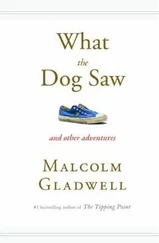Malcolm Gladwell - The Tipping Point
Здесь есть возможность читать онлайн «Malcolm Gladwell - The Tipping Point» весь текст электронной книги совершенно бесплатно (целиком полную версию без сокращений). В некоторых случаях можно слушать аудио, скачать через торрент в формате fb2 и присутствует краткое содержание. Город: Boston, New York, London, Год выпуска: 2000, ISBN: 2000, Издательство: LITTLE, BROWN AND COMPANY, Жанр: Культурология, Психология, на английском языке. Описание произведения, (предисловие) а так же отзывы посетителей доступны на портале библиотеки ЛибКат.
- Название:The Tipping Point
- Автор:
- Издательство:LITTLE, BROWN AND COMPANY
- Жанр:
- Год:2000
- Город:Boston, New York, London
- ISBN:0-316-31696-2
- Рейтинг книги:3 / 5. Голосов: 1
-
Избранное:Добавить в избранное
- Отзывы:
-
Ваша оценка:
- 60
- 1
- 2
- 3
- 4
- 5
The Tipping Point: краткое содержание, описание и аннотация
Предлагаем к чтению аннотацию, описание, краткое содержание или предисловие (зависит от того, что написал сам автор книги «The Tipping Point»). Если вы не нашли необходимую информацию о книге — напишите в комментариях, мы постараемся отыскать её.
The Tipping Point — читать онлайн бесплатно полную книгу (весь текст) целиком
Ниже представлен текст книги, разбитый по страницам. Система сохранения места последней прочитанной страницы, позволяет с удобством читать онлайн бесплатно книгу «The Tipping Point», без необходимости каждый раз заново искать на чём Вы остановились. Поставьте закладку, и сможете в любой момент перейти на страницу, на которой закончили чтение.
Интервал:
Закладка:
"Mark Alpert is a wonderfully unselfish man," Leigh MacAllister, a colleague of his at the University of Texas, told me. "I would say he saved me fifteen thousand dollars when I first came to Austin. He helped me negotiate the purchase of a house, because he understands the real estate game. I needed to get a washer and dryer. He got me a deal. I needed to get a car. I wanted to get a Volvo because I wanted to be just like Mark. Then he showed me an on-line service that had the prices of Volvos all over the State of Texas and went with me to buy the car. He helped me through the maze of all the retirement plans at the University of Texas. He simplified everything. He has everything processed. That's Mark Alpert. That's a Market Maven. God bless him. He's what makes the American system great."
What makes people like Mark Alpert so important in starting epidemics? Obviously they know things that the rest of us don't. They read more magazines than the rest of us, more newspapers, and they may be the only people who read junk mail. Mark Alpert happens to be a connoisseur of electronic equipment. If there was a breakthrough new television or videocamera, and you were a friend of his, you can bet you would hear all about it quickly. Mavens have the knowledge and the social skills to start word-of-mouth epidemics. What sets Mavens apart, though, is not so much what they know but how they pass it along. The fact that Mavens want to help, for no other reason than because they like to help, turns out to be an awfully effective way of getting someone's attention.
This is surely part of the explanation for why Paul Revere's message was so powerful on the night of his midnight ride. News of the British march did not come by fax, or by means of a group e-mail. It wasn't broadcast on the nightly news, surrounded by commercials. It was carried by a man, a volunteer, riding on a cold night with no personal agenda other than a concern for the liberty of his peers. With Hush Puppies as well, perhaps the shoes caught the attention of Connectors precisely because they weren't part of any self-conscious, commercial fashion trend. Maybe a fashion Maven went to the East Village, looking for new ideas, and found out that you could get these really cool old Hush Puppies at a certain thrift store, for a very good price, and told his friends, who bought the shoes for themselves because there is something about the personal, disinterested, expert opinion of a Maven that makes us all sit up and listen. And why are the Zagat restaurant guides so popular? Partly it is because they are a convenient guide to all the restaurants in a given town. But their real power derives from the fact that the reviews are the reports of volunteers — of diners who want to share their opinions with others. Somehow that represents a more compelling recommendation than the opinion of an expert whose job it is to rate restaurants.
When I was talking to Alpert, I happened to mention that I was going to be in Los Angeles in a few weeks. "There is a place I really like, in Westwood," he said, without hesitation. "The Century Wilshire". It's a European bed-and-breakfast. They have very nice rooms. A heated pool. Underground parking. Last time I was there, five, six years ago, rooms started in the seventies and junior suites were a hundred and ten. They'll give you a rate for a week. They've got an 800 number." Since he was, after all, the Ur-Maven, I stayed at the Century Wilshire when I was in L.A., and it was everything he said it was and more. Within a few weeks of coming home, I had — completely out of character, I might add — recommended the Century Wilshire to two friends of mine, and within the month two more, and as I began to imagine how many people of those I told about the hotel had told about the hotel, and how many people like me Mark Alpert had himself told about the hotel, I realized that I had stepped into the middle of a little Mark Alpert-generated, word-of-mouth epidemic. Alpert, of course, probably doesn't know as many people as a Connector like Roger Horchow, so he doesn't quite have the same raw transmission power. But then again, if Roger Horchow talked to you on the eve of a trip to Los Angeles, he might not give you advice on where to stay. Alpert always would. And if Horchow did make a recommendation, you might take him up on it or you might not. You would take the advice as seriously as you take advice from any friend. But if Mark Alpert gave you advice, you would always take it. A Connector might tell ten friends where to stay in Los Angeles, and half of them might take his advice. A Maven might tell five people where to stay in Los Angeles but make the case for the hotel so emphatically that all of them would take his advice. These are different personalities at work, acting for different reasons. But they both have the power to spark word-of-mouth epidemics.
The one thing that a Maven is not is a persuader. Alpert's motivation is to educate and to help. He's not the kind of person who wants to twist your arm. As we talked, in fact, there were several key moments when he seemed to probe me for information, to find out what I knew, so he could add it to his own formidable database. To be a Maven is to be a teacher. But it is also, even more emphatically, to be a student. Mavens are really information brokers, sharing and trading what they know. For a social epidemic to start, though, some people are actually going to have to be persuaded to do something. A good number of the young people who bought Hush Puppies, for instance, were people who once upon a time wouldn't have been caught dead in them. Similarly, after Paul Revere had passed on his news, you can imagine that all of the men in the militia movement gathered around and made plans to confront the British the following morning. But it can't have been an automatic process. Some people were probably gung-ho. Some may have doubted the wisdom of confronting a trained, professional army with a homegrown militia. Others — who may not have known Revere personally — might have been skeptical about the accuracy of his information. That almost everyone, in the end, fell in line is something that we would normally credit to peer pressure. But peer pressure is not always an automatic or an unconscious process. It means, as often as not, that someone actually went up to one of his peers and pressured him. In a social epidemic, Mavens are data banks. They provide the message. Connectors are social glue: they spread it. But there is also a select group of people — Salesmen — with the skills to persuade us when we are unconvinced of what we are hearing, and they are as critical to the tipping of word-of-mouth epidemics as the other two groups. Who are these Salesmen? And what makes them so good at what they do?
Tom Gau is a financial planner in Torrance, California, just south of Los Angeles. His firm — Kavesh and Gau — is the biggest in its field in southern California and one of the top financial planning firms in the country. He makes millions of dollars a year. Donald Moine, a behavioral psychologist who has written widely on the subject of persuasion, told me to look up Gau because Gau is "mesmerizing." And so he is. Tom Gau happens to sell financial planning services. But he could, if he wanted to, sell absolutely anything. If we want to understand the persuasive personality type, Gau seems a good place to start.
Gau is in his forties. He is good-looking, without being pretty at all. He is of medium height, lean, with slightly shaggy dark hair, a mustache, and a little bit of a hangdog expression. Give him a horse and a hat and he'd make an excellent cowboy. He looks like the actor Sam Elliot. When we met, Gau shook my hand. But as he told me later, usually when he meets someone he gives him a hug or — if it is a woman — a big kiss. As you would expect from a great salesman, he has a kind of natural exuberance.
Читать дальшеИнтервал:
Закладка:
Похожие книги на «The Tipping Point»
Представляем Вашему вниманию похожие книги на «The Tipping Point» списком для выбора. Мы отобрали схожую по названию и смыслу литературу в надежде предоставить читателям больше вариантов отыскать новые, интересные, ещё непрочитанные произведения.
Обсуждение, отзывы о книге «The Tipping Point» и просто собственные мнения читателей. Оставьте ваши комментарии, напишите, что Вы думаете о произведении, его смысле или главных героях. Укажите что конкретно понравилось, а что нет, и почему Вы так считаете.










